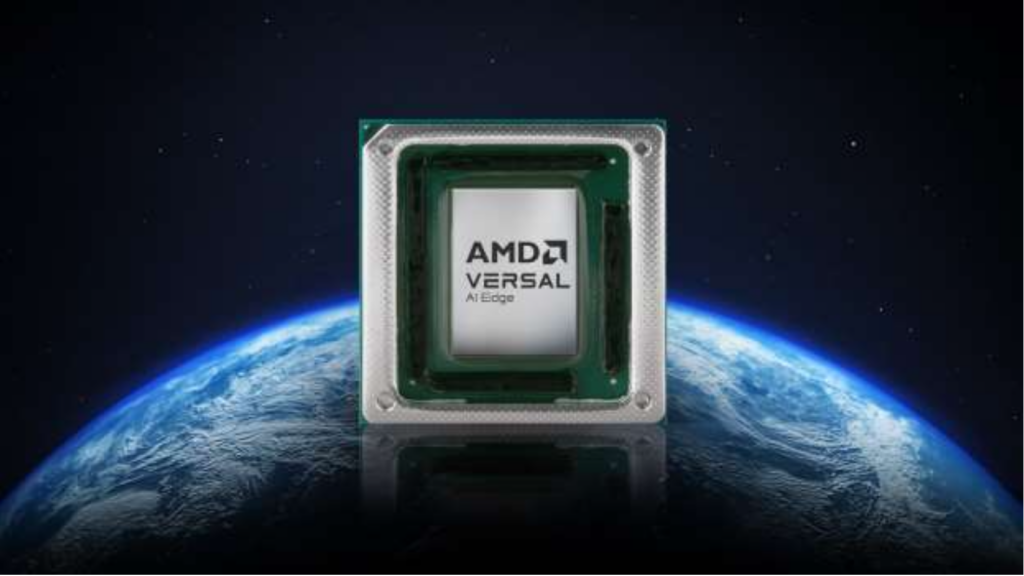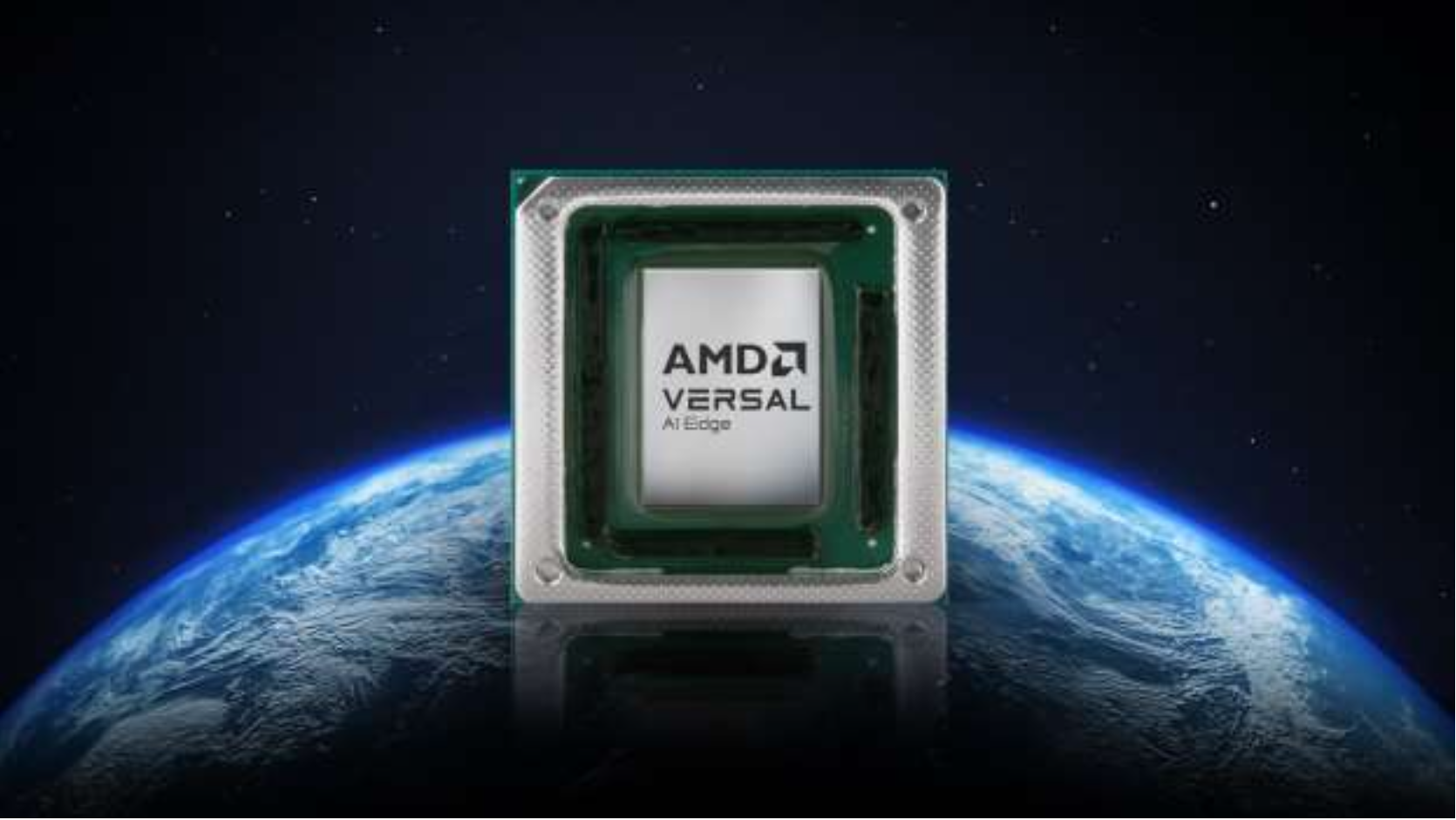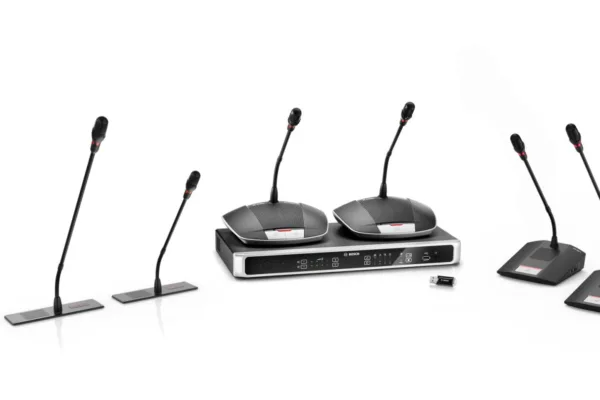AMD is making significant strides in space technology with the launch of its latest offering, the Versal™ AI Edge XQRVE2302, which has just become the second radiation-tolerant device in the space-grade (XQR) Versal adaptive SoC portfolio to achieve Class B qualification for spaceflight. This milestone opens the door for customers to begin placing orders, with shipments expected to begin in the Fall.
The Versal AI Edge XQRVE2302 is poised to revolutionize space applications by introducing accelerated AI inferencing, bringing advanced machine learning capabilities to the final frontier. Integrated with enhanced AMD AI Engines (AIE) optimized specifically for machine learning (ML) applications, the XQRVE2302 delivers a remarkable performance boost.
The AIE-ML engines offer up to 2X the INT8 performance and 16X the BFLOAT16 performance compared to the first-generation AI engines, all while reducing latency. Additionally, the device’s memory architecture has been revamped to double the local memory, thanks to the addition of new memory tiles that offer high-bandwidth, shared memory access for even faster processing.
Earlier this year, the chipset maker has also forged a transatlantic partnership with CEA, the French Commissariat à l’énergie atomique et aux énergies alternatives, to develop advanced technologies and system architectures that will define the next generation of AI computing.
AMD’s Versal XQRVE2302 is a groundbreaking achievement

AMD’s Versal XQRVE2302 is a groundbreaking achievement, especially considering its compact design. At just 23mm x 23mm, it is the industry’s first adaptive SoC designed for space applications to be offered in such a small form-factor package.
Despite its compact size, the device packs the same powerful processor system found in its larger counterpart, the Versal AI Core XQRVC1902 — but in less than 30% of the board area. This reduction in size results in a significant drop in power consumption, making it ideal for resource-constrained space missions.
The XQRVE2302 is equipped with a dual-core Arm® Cortex®-A72 application processor and a dual-core Arm Cortex-R5F real-time processor, along with AIE-ML, DSP blocks, and FPGA programmable logic. These features combine to offer a robust platform for developers to convert raw sensor data into actionable insights.
This makes it perfect for space edge processing tasks, such as image detection and classification, autonomous navigation, and sensor data processing —all crucial in space exploration.
Cloud detection and AI inferencing in space

Applications for AI inferencing in space are wide-ranging.
For example, the XQRVE2302 can be used for telemetry anomaly detection, wildfire detection, vegetation and crop identification, and cloud detection. Cloud detection, in particular, is essential for Earth imaging satellites, helping to avoid wasting power by transmitting data when the subject is obscured by clouds.
To help developers get started, Alpha Data, a leading provider of FPGA-based acceleration boards, has unveiled a radiation-tolerant reference design for the AMD Versal AI Edge XQRVE2302 adaptive SoCs. Known as the ADM-VB630 reference design, it’s engineered for fast, cost-effective development and rapid prototyping for space applications, providing a solid foundation for building next-generation space systems.
According to Andrew McCormick, Technical Director and CTO at Alpha Data, the chipmaker’s Versal AI Edge XQRVE2302 is a game-changer. “The XQRVE2302 is key in the ADM-VB630 delivering a powerful and efficient solution for next-generation satellite applications,” he said. “By enabling AI and advanced sensor processing in space, we are opening new frontiers for in-orbit intelligence and bringing AI inferencing to space.”
The Versal XQR Series is designed to complement each other, allowing these devices to coexist seamlessly in the same system design. While the XQRVC1902 devices handle heavy-duty signal processing functions, the XQRVE2302 specializes in command and control, AI inferencing, and edge computing functions—offering a comprehensive solution for space-grade systems.
The Versal XQR Series can support unlimited reprogramming

One of the most remarkable features of the Versal XQR Series is its support for unlimited reprogramming — both during development and even after deployment in the harsh radiation environment of space. This reprogrammability sets it apart from other radiation-tolerant FPGAs and paves the way for more adaptive, flexible systems in space.
For developers, the chipset maker offers an array of tools to streamline design and development, including the AMD Vivado™ tool suite and the Vitis AI software platform. These tools are compatible with industry-standard frameworks such as RTL, C/C++, Matlab, Caffe, TensorFlow, PyTorch, and many more, enabling faster and more efficient development processes.
AMD will showcase the Versal AI Edge XQRVE2302 at the SpacE FPGA Users Workshop (SEFUW), where Ken O’Neill, AMD’s space architect, will present a keynote on the device’s capabilities on Wednesday, March 26th at 9:10 AM CET.
This development marks a new era for space technology, where AI and edge processing bring unprecedented capabilities to space missions. The Versal AI Edge XQRVE2302 offers both the performance and flexibility that space exploration demands — paving the way for smarter, more efficient, and more capable space systems.
To learn more about the chipset maker’s Versal™ XQR adaptive SoCs for space, visit AMD’s official website.






